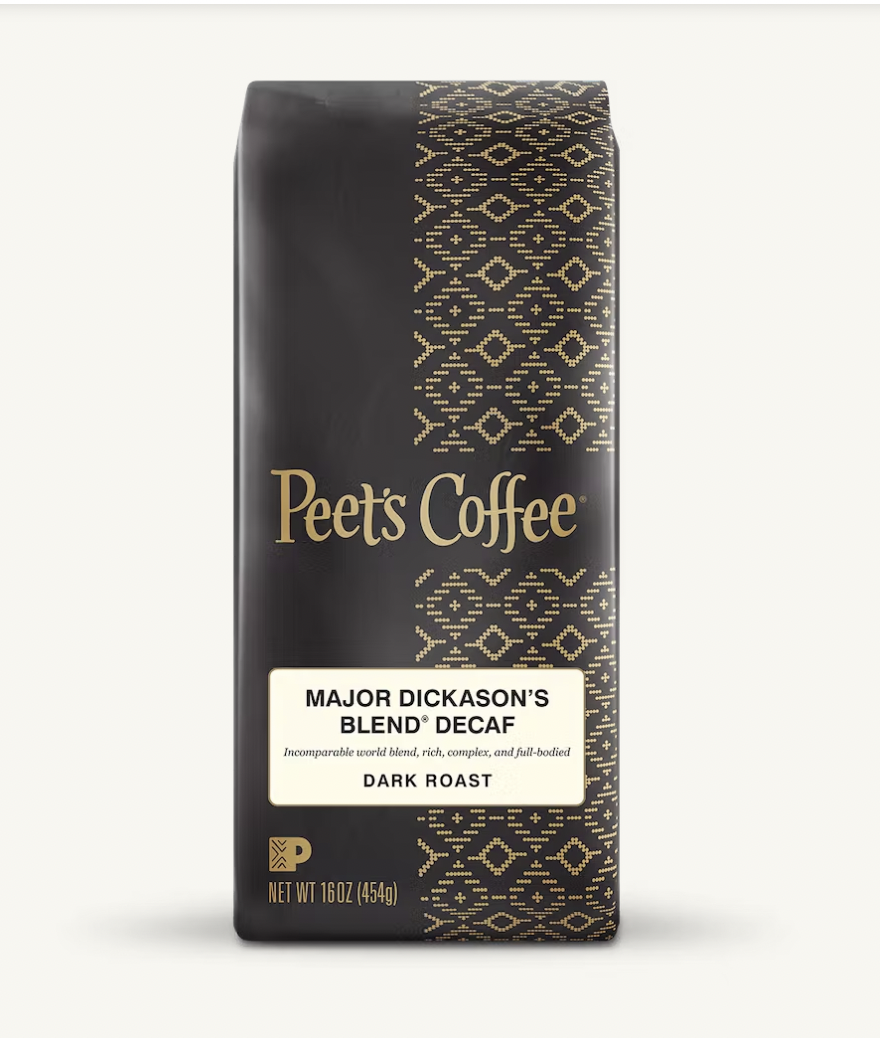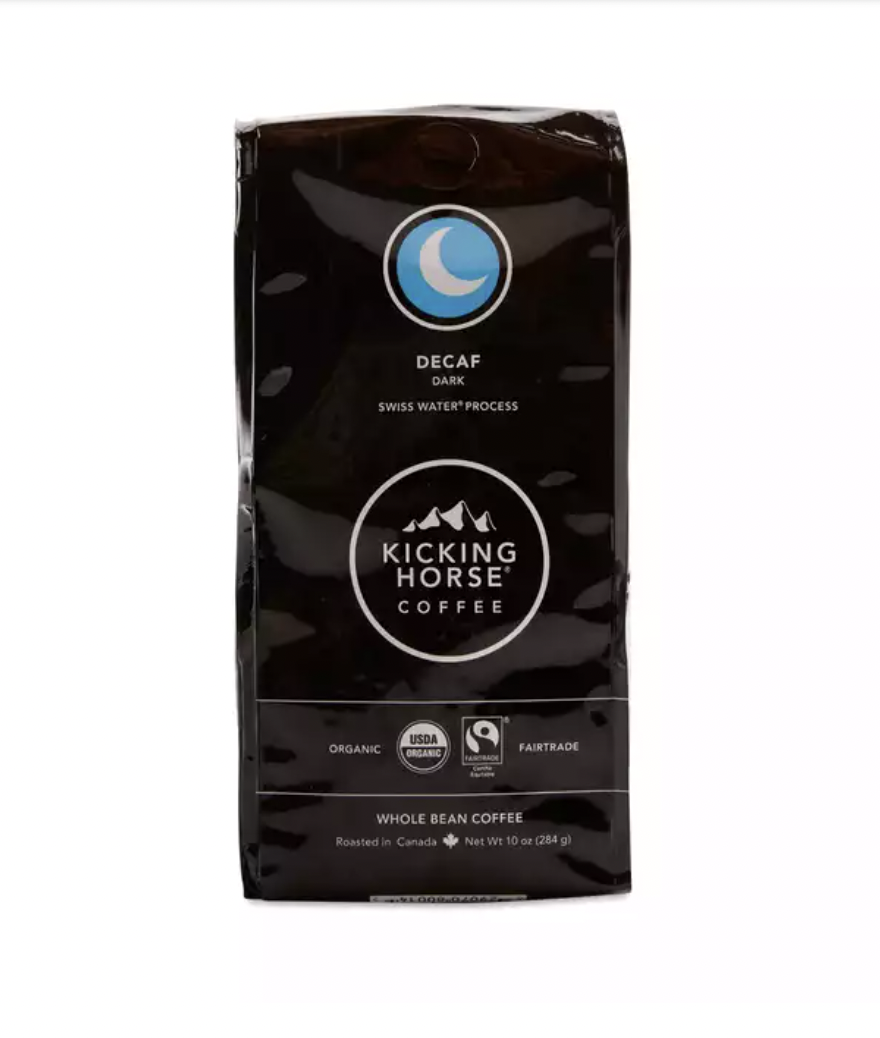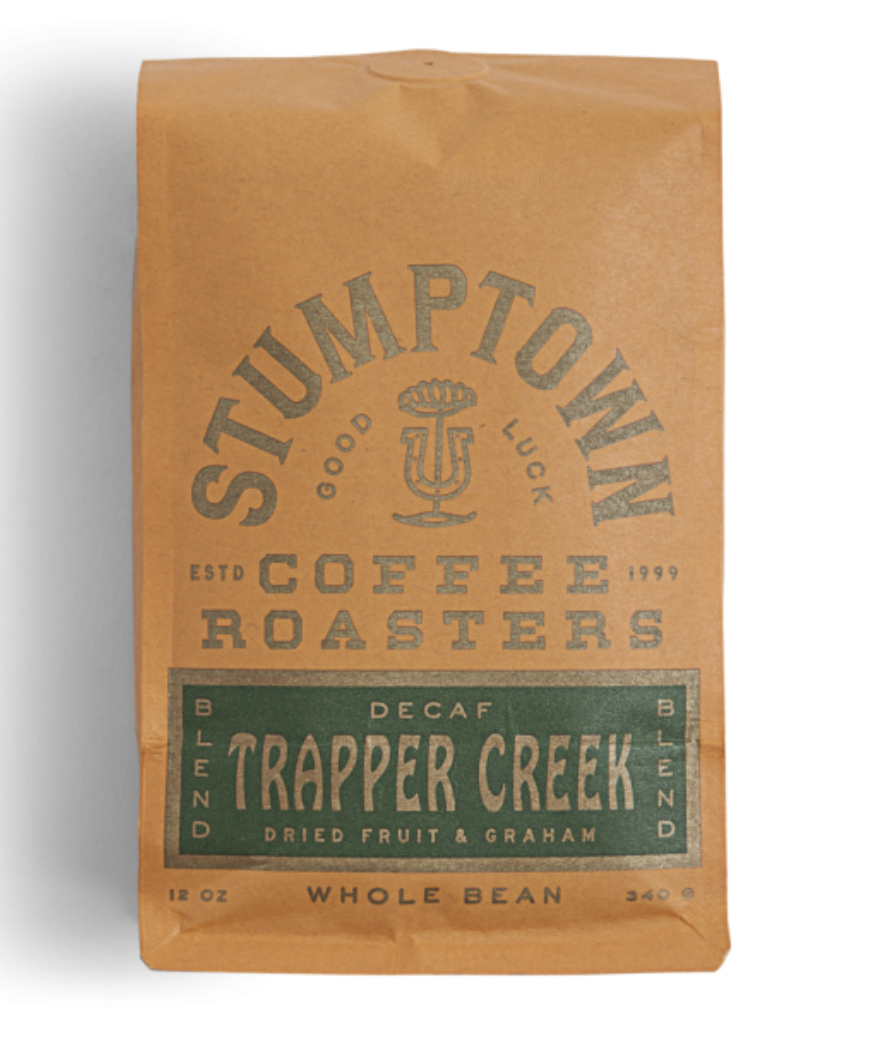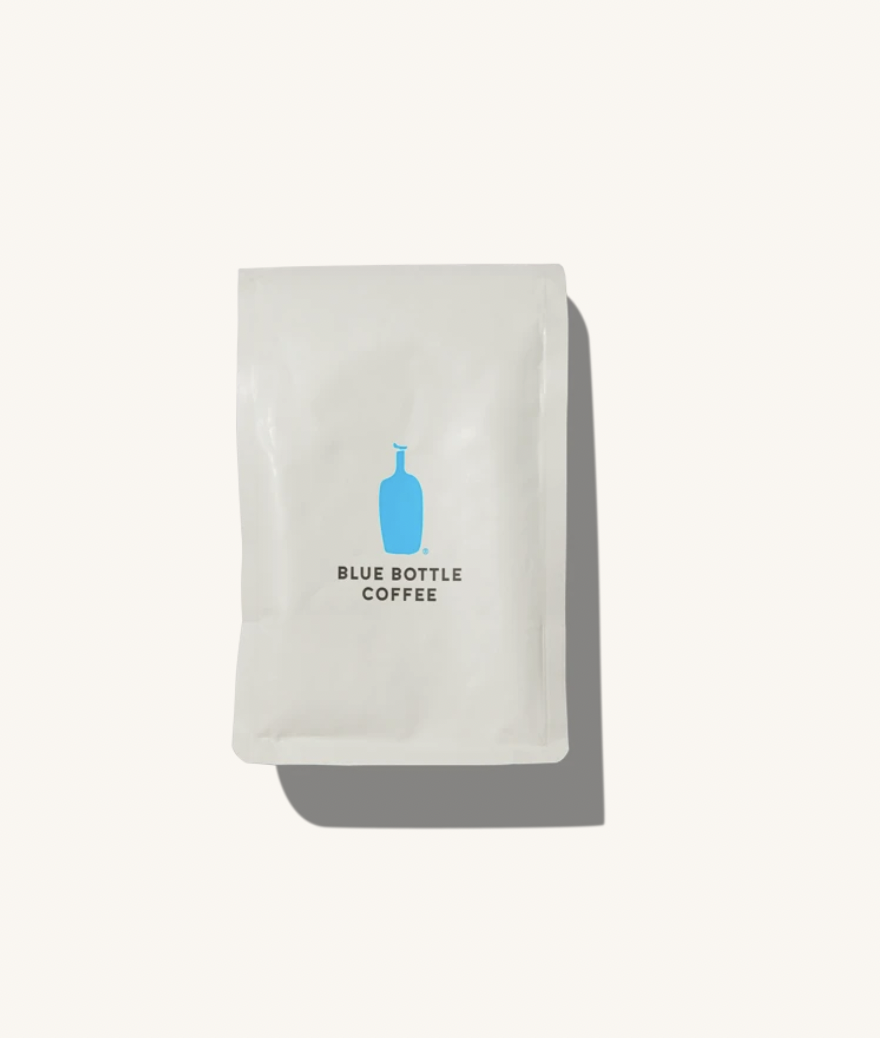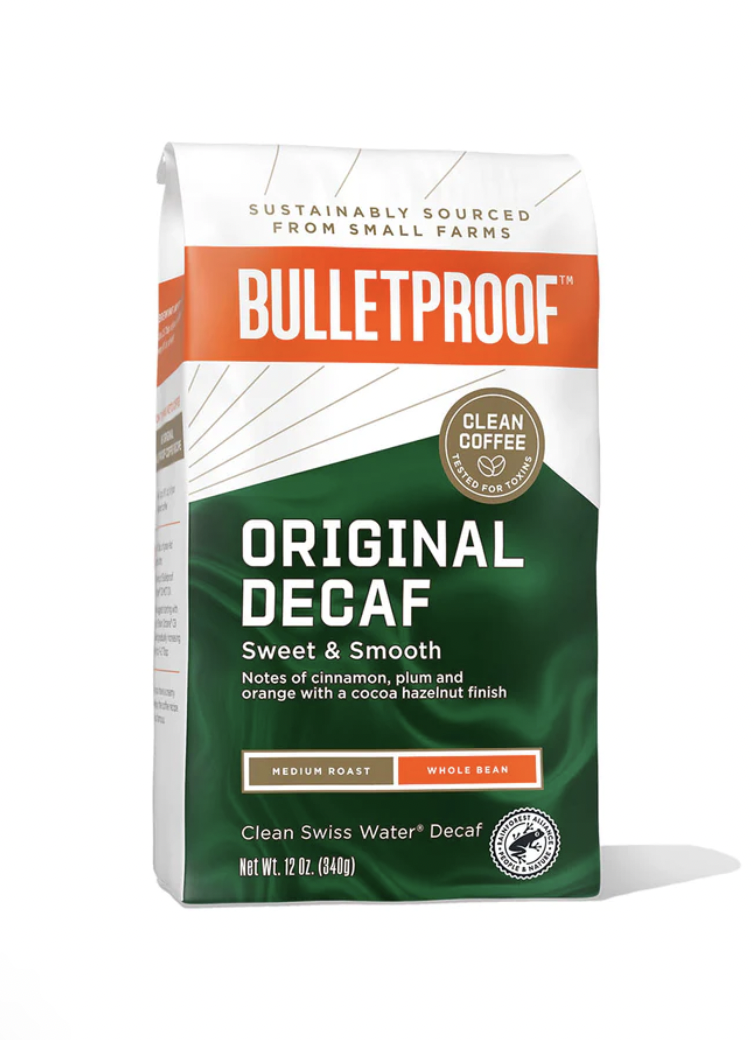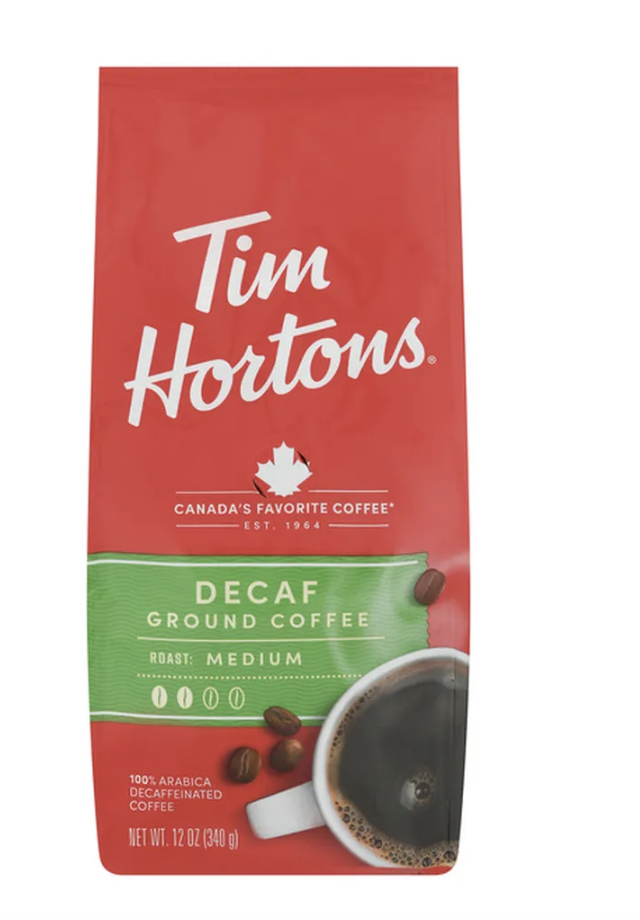Swiss Water Decaf Coffee Brands
So you've decided to cut caffeine. Congratulations! I promise the afternoons are going to get easier. When I gave up my regular coffee (i.e. caffeinated coffee) habit which you can read about here, I decided I'd just simply switch to a French press to make some delicious decaf coffee instead. Drinking decaffeinated coffee is easier than it seems. You get used to the flavor, the decaf blend options, and come to enjoy the ritual as you would with your bold flavor caffeinated coffee.
For more details on why I made the switch, mostly for hormone regulation, I've written about my decision, good coffee alternatives and what my experience was like.
My general rule is be informed!
I've learned recently that there are no less than 3 ways to make decaf coffee. Some involved harsh chemicals, while others simply use water. Not only is it an interesting fact, but it's great information for the coffee lover.
One thing to remember is that decaffeinated coffee is just that decaffeinated. It's not in fact non-caffeinated. The three processes I'll describe below remove the majority of the caffeine from the coffee beans, but it's impossible to remove all of it. So know you'll still be drinking some caffeine. There's no such thing (as of yet), as caffeine free coffee.
There are 3 different ways, and if you're getting on your health kick, this is the time to study up. The coffee companies themselves do the extracting, while the coffee beans are whole. It's not simply a difference between organic and not, or even fair trade and not. If you want to understand how your decaf is being processed, you need to do a little research.
Below are the three ways spelled out that decaf is extracted from coffee. If you're going to drink decaf, you want to read up. Below are the different ways, plus some brands I've found that are great that use high-quality coffee beans and will make your morning brew that much better.
1) Soaking in a Solvent Method
According to this BBC Article, the most common way companies extract caffeine from their beans is to soak the green coffee beans in a solvent. Usually the solvent is a chemical.
The BBC says the solvent is either methylene chloride or Ethyl acetate.
Methylene chloride is also known as dichloromethane. OSHA the United States Occupational Safety and Health Administration says that methylene chloride is used routinely used for "paint stripping, pharmaceutical manufacturing, paint remover manufacturing, and metal cleaning and degreasing". YIKES!
Meanwhile, ethyl acetate has slightly different uses besides the decaffeination process, and that includes uses in glues and nail polish removers.
Needless to say these are harsh chemicals, regulated by OSHA, and not something you should handle on your own.
So how does it work exactly?
Making Decaf Coffee: Extracting Caffeine with Solvent
The green coffee beans are covered in water and the solution (either ethyl acetate or methylene chloride), which draws out the caffeine. Because the solvent solution is used again and again, it becomes more concentrated in caffeine and flavor. This actually prevents the green coffee beans from losing their flavor notes because it's basically a coffee flavored extract.
Is It Safe?
According to the BBC, in 1985 the US Food and Drug Administration (FDA) said that the risk was minimal and very low to methylene chloride. For some more context, the FDA allows up to 10 parts per million for methylene chloride, and the decaffeination process uses solutions with one part per million.
The extra solvent is removed by steaming the coffee beans, says Scientific American. But, there are still trace amounts left.
So it is within the FDA guidelines, but you'll have to decide for yourself if you're comfortable with that level of exposure.
2) Swiss Water Process Method
The Swiss water process method (which started in the 1930s in Switzerland), basically involves the beans being soaked in a proprietary green coffee extract. This extract is made just by soaking beans in water and is essentially a coffee extract minus the caffeine.
After soaking, the caffeinated water is then strained through activated charcoal (think like a water filter), which absorbs the caffeine.
This method became popular due to its lack of chemical solution exposure, but you'll have to check to see which companies use it and which don't.
Make sure you keep reading to the end, where I list out the 5 best decaf coffee beans that use the Swiss water process for decaffeinated coffee.
3) Supercritical Carbon Dioxide Method
The supercritical carbon dioxide method is very similar to the methylene chloride solvent method except the solvent is carbon dioxide. Extremely high pressure is used to rotate the soaked green coffee beans and the carbon dioxide. At this level of pressure (somewhere around 250x atmospheric pressure), the carbon dioxide takes on "supercritical" properties, which makes it dense like water along with a few other changes.
While carbon dioxide is readily available and makes for a good solvent, the problem with this decaffeination method, it's extremely expensive. It is effective though and removes 96-98% of the caffeine.
Recommended Brands: Best Decaffeinated Coffee
Now that you have the knowledge, when you're picking out your delicious coffee, be cognizant. Maybe the chemical solution doesn't bother you, but if it does and you want to be more careful about what you're drinking (probably everyday let's be real here). Then here are 6 brands that I love, that use the Swiss water process, so you can feel good about your morning dark roast. You can also check out this link through Clean Label Project called “Check Your Decaf” on which brands use Swiss Water Process!
Peet's Coffee
Peet's decaf in my favorite blend, Major Dickason's
I love Peet's coffee. It's something I grew up with, being from California. Back in my caffeinated days, I'd go for Major Dickason's dark roast (great news it comes in decaf). Nowadays, I stick with whatever decaf is available (it can be limited let's be real here).
The great news about Peet's decaf, it's Swiss water process and that includes the k-cups!
For the purists, you can get decaf beans, whole and grind them yourself, or buy the ground coffee version if you have a little less time in the morning.
The other thing about Peet's is they do have decaf, organic coffee available. Look for the green pouches (versus their usual brown), that's the organic items.
Kicking Horse Coffee
Kicking Horse Coffee in decaf
I discovered Kicking Horse Coffee about 12 years ago at a documentary film festival for all things outdoorsy, the Banff Centre Mountain Film Festival, which you MUST attend if you ever get the chance. They were throwing out samples to the crowd, and let me tell you, I got hooked as soon as I brewed it. Turns out it makes sense sense both the film festival and the brand are Canadian.
They use the Swiss water process (yay!) and the coffees are fairtrade and organic to boot.
Stumptown Coffee
Stumptown Trapper Creek Decaf
Stumptown has become a household name in coffee. Originally based out of Portland but enjoyed nationally, Stumptown has delicious rich coffee. So grab your french press, and get brewing. Like many brands, when you subscribe to coffee deliveries, you get a discount!
They use their own Direct Trade method of sourcing coffee which involves knowing and paying the coffee producers so that you know where your coffee beans are coming from.
Blue Bottle Coffee
Delicious decaf from Blue Bottle Coffee
Another brand that has become more popular (that I see around New York!), is Blue Bottle. Their decaffeinated coffee is delicious and safe. Note: the cold brew does not mention the Swiss Water Process, but their normal drip coffee does.
Their beans are roasted in small batches globally to make each cup that much more special.
If you haven't tried them yet, check them out!
Bulletproof Coffee
Bulletproof original decaf doesn't have to be combined with MCT oil to be delicious.
Bulletproof might be known for their keto, MCT oil concoctions (if you've made them and loved them please let me know), but their decaf coffee is reliably safe. Their decaffeinated coffee beans are processed using the Swiss water decaf method.
Give it a try and know what you're drinking doesn't have trace amounts of these harsh chemicals that you find in your nail polish remover!
Tim Horton’s
Canada has some amazing natural wonders, gorgeous landscapes, the (arguably) prettier side of Niagara Falls, and Tim Horton’s Swiss Water Process decaf coffee. If you’re in Canada grab some decaf with your Timbits. For those of us not in in the great country, I have good news! Tim Horton’s decaf coffee is available outside the country. This is a great option for your decaf coffee needs at a fraction of the cost of some of the pricier alternatives.
McDonalds McCafe Premium Decaf
Those famous golden arches make me think of many things (mostly the toys in kids meals), and while I don’t eat fast food anymore, it turns out McDonald’s Premium decaf coffee is Swiss Water Processed! Here’s the catch, I believe the decaf in the United States may not be Swiss Water Processed, but it does seem to be in Canada! So if you’re ordering some online (you can use the link above to buy the Canadian version) make sure it says it’s Swiss Water Processed!




